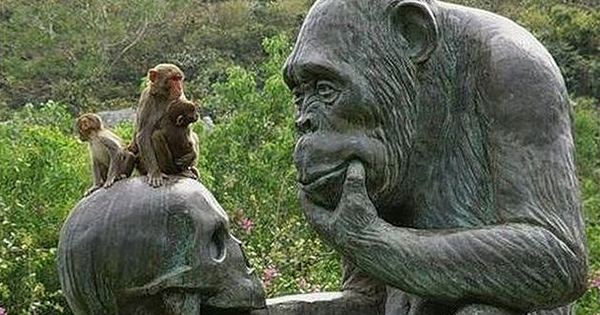The article Don’t Know Mind is reprinted on Slanted Flying website with the permission of the author Sam Langley from his personal Blog.

Several years ago I read book called ‘Wanting enlightenment is a big mistake’. It was about the teachings of Korean Zen master Seung Sahn and written by one of his students . Central to the teachings was the importance of don’t know mind. Master Seung Sahn was against the books publication and described it as poison. I think his point was that reading, talking and thinking about Zen would only further delude and distract people from the real practice.
Many wise people have expressed the importance of ‘Don’t know’ in different ways. Socrates realised that true wisdom came from knowing one knew nothing, Chuang Tzu couldn’t determine whether he was man dreaming about being a butterfly or a butterfly dreaming about being a man and many centuries later Robert Anton Wilson asserted that ‘Belief is the death of intelligence’.
It seems to me that human beings are seldom just being, we are constantly thinking, talking and doing. Which is fine….But it means we are never at peace. I think the majority of people experience a constant level of mild anxiety which is only relieved by alcohol and television. The default setting for a human seems to be one of restlessness.
Meditation is supposed to help but what IS meditation? Our mind is constantly busy, thinking thinking thinking, conceptualizing and judging. In Buddhism they call this monkey mind. The monkey mind always wants something to do, so to calm the mind we need to give it something to do. In this way anything that requires focused attention could conceivably be called meditation. Not all activities are equally conducive to meditation however and the mind soon becomes restless again. Within many eastern traditional forms of meditation, particular attention is placed upon posture and relaxation.
Tai Chi is a particularly good method as we focus on the whole body. The monkey mind always has something to occupy it because there’s always something to adjust. Initially Tai Chi seems difficult, the legs hurt , the moves are complex and the mind wants to give up. But the fact that it’s difficult is what makes it such a good practice. If your legs hurt while your doing standing Qigong, you are in the moment experiencing that feeling, that’s real meditation!
Whilst meditating we drop into the state of ‘Don’t know’ we have moments where we are no longer conceptualizing. To start with these moments are brief and then become longer. Once you can bring your focus into the body for long periods the mind will become very calm.
Even just trying to bring the concept of ‘don’t know’ into your life can be helpful. It creates a wonderful feeling of release to admit on a regular basis that you don’t know. I myself like being right. I like a good debate and often make my point vigorously. More and more I find that need to be right lessening, after all I don’t really know what I’m talking about. Most people don’t know what they’re talking about either.
The problem arises with language. We are trapped by words. Robert Anton Wilson was opposed to using the word ‘IS’ which in his view gave rise to all conflict and misunderstanding in the world. By removing IS from your speech you suddenly sound a lot more reasonable – ‘The grass is green’ or ‘The grass appears to be green’
There’s no scientific evidence that Ghosts exist which leads some people to conclude that they therefore definitely don’t. I think it’s more reasonable to say that we don’t know, but that doesn’t satisfy the desire in most people to have an opinion, to know if something exists or it doesn’t, yes or no.
I have a feeling that peace of mind exists between yes and no, between yin and yang and that this place between the poles is the non judgmental feeling of don’t know mind.
Leave a Reply